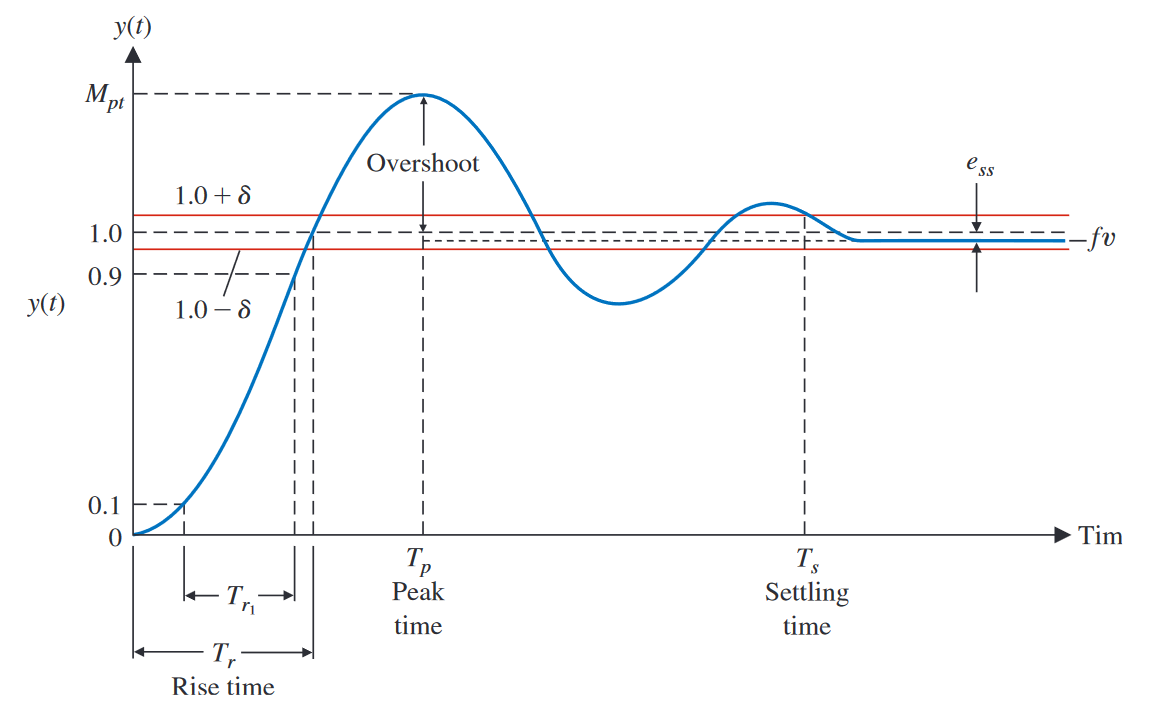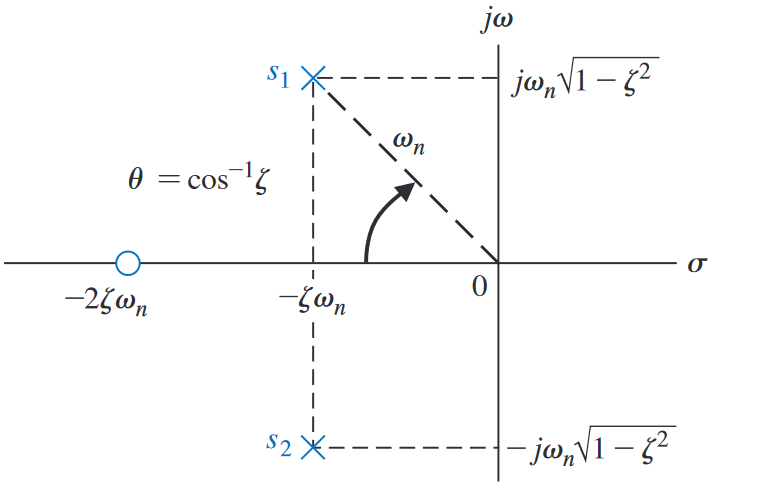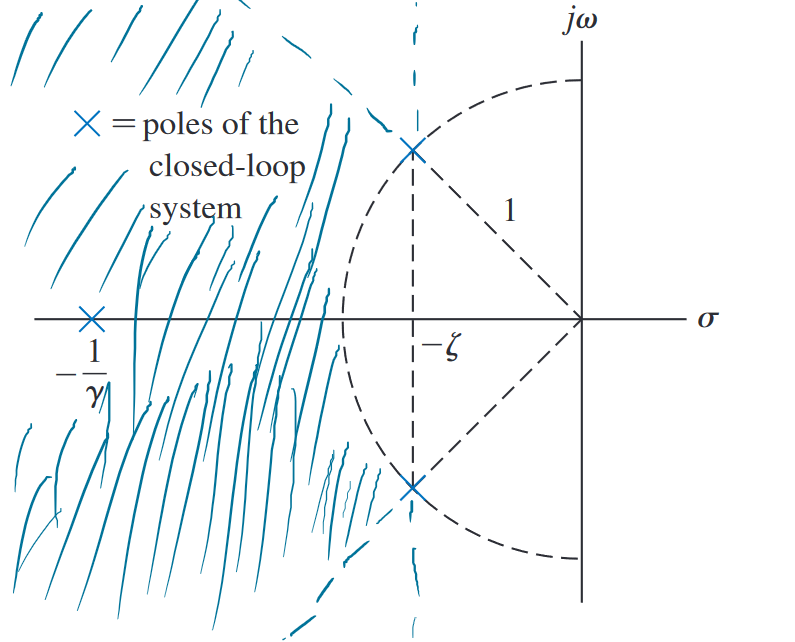There are several key parameters in the time response (specifically the transient response) of a control system that we design for:1

 Important parameters we’re interested in:
Important parameters we’re interested in:
- The yellow line denotes an arbitrary threshold. The time such that it never goes beyond the threshold is called the settling time .
- Usually we set this threshold as within 2%.
- The time between 10% and 90% of the first rise to the final value is the rise time . We can define such that .
- The peak time is the time at which the system attains its maximum value.
- The percent overshoot is defined as: , where is the final value of the response as . We can also define it as:
Design
Often we want to design for specific desired specifications. The exponent just denotes “desired” and isn’t a real exponent.
For all to be satisfied, we must have a pole in the shaded area below.1 We determine the bounds of the shaded area by finding and .
 Note that our formulas above (involving ) are only valid for second-order systems with complex conjugate poles. However, we can use them for higher-order systems if the additional poles and zeroes are sufficiently to the left of the dominant pair of poles (at least 5 times smaller).
Note that our formulas above (involving ) are only valid for second-order systems with complex conjugate poles. However, we can use them for higher-order systems if the additional poles and zeroes are sufficiently to the left of the dominant pair of poles (at least 5 times smaller).